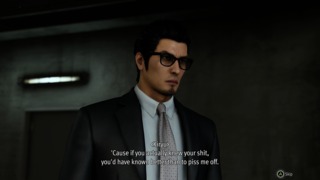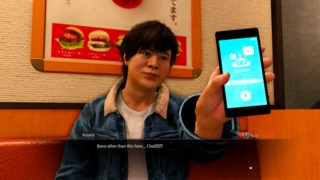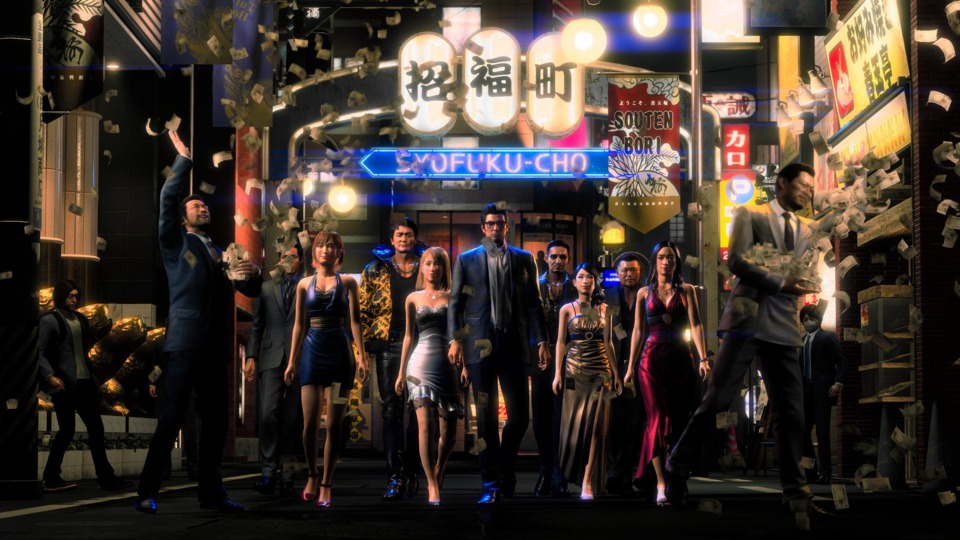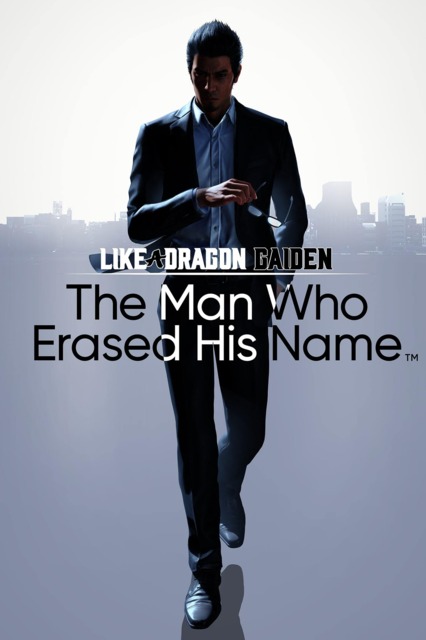Like a Dragon Gaiden: Sideshow Kaz

Reviewed on PC. Time to completion: 15 Hours.
What starts with a few experiments on tried and true formulas doesn't end up anywhere all that unique, but that's ok. But as a result, the game itself is only OK.
Like a Dragon Gaiden is not meant to be your first Yakuza game. It's also very clearly not meant to be your last Yakuza game. The experience is very much reserved for up to date players, and only reaches out boldly in ways you'd have to already be on board to notice. From the first combat sequence, we learn that our Dragon is very much on a leash, fulfilling missions for the Dadoji Faction, a secret underground organization functioning as a party affiliated State Department, manipulating events to the favor of the ruling party. Such an organization does have a few things to teach Kiryu, mainly in the game's boldest innovation, the Agent fighting style. LADG is a game about crowd control more than others RGG Studios has released. While only featuring two styles, consisting of the gadget and finishing move focused Agent alongside the traditional big kicks and power moves of the Dragon style, most of what's new and interesting in the on the ground gameplay happens here. The spider tool allows you to grab up to four enemies, and toss them out of your way. Toss in exploding cigarettes into a crowd for some easy AOE damage. Get away from whatever enemy is carrying a weapon that'll drop you with the Serpent rocket boots. Call in a flood of Hornet drones in order to add interrupts to an enemy. These tools feel fresher than most anything the game offers, and were enough to keep the gameplay from feeling stale throughout the entire runtime. The other fighting style, Dragon, really doesn't offer much new other than a stunning headbutt attack that breaks up the punch/block/grab/dodge gameplay that rarely deviates outside the norm across all 7 Kiryu based games, and both Judgements. You do get the sensation that RGG is aware you might be a bit done with that whole loop by now, but doesn't fully know how to move away from it.
Storytelling also sees a few early experiments, but less of these land square as some organizational choices backfire and take you out of the living, breathing streets that are always a highlight of these half-fictional neighborhoods when done well. There aren't really new areas on offer; all gameplay takes place either in a small subsection of Yakuza 7's Yokohama, or back on the very familiar streets of Osaka's Sotenbori. It all feels incredibly safe in its setting, and the story does nothing to take you out of that feeling of safety. Kiryu has a few factions to navigate, but no agency while doing so. Most builds up to interesting plot twists are either so telegraphed you don't really feel any impact from reveals, or are so constrained by the setting's in-between placement on an established timeline, anything that threatens to happen isn't really believable.

Side stories suffer in a similar fashion in a manner I don't think will please anyone but the most checklist focused. Sidestories have always been where a lot of the best laughs and most poigniant content lives in this series, and the removal of discovering them on the street in favor of the Akame Network, the game's substory hub, has the unfortunate side effect of making the usual run around, eat food, beat thugs routine even blander. If you, like I, have done this a good eight times across the series already, that's a big ask. Akame herself, the chain-smoking slang speaking information dealer Kansai bebop girl, is an amazing character. It's good that RGG has finally learned to write compelling female characters. It doesn't save the flow and pace of this game, and again since the ending is already fixed in the timeline, she can't get all that close to Kiryu. There's a better game past what's dragging this setting down that isn't realized.

Mini-game side activities are another source of joy for the franchise that don't really land; there's only one brand new to the series, and it's a spin on an existing one in the cabaret girls, who are now full FMV. Darts, pocket circuit, golf, pool, poker and blackjack, and the traditional Japanese games are wholly unchanged from past entries so these girls are given a lot of weight to carry, and maybe this is for someone but boy it's not for me. I don't speak Japanese, but I know a nervous performance when I see one. I was always a bit unsettled, here. I did see it through, raising enough affection with one girl I got to take her on a poolside date; you are going through all this for a bikini scene, don't leave yourself any doubt. Other than being slightly amused at a few reactions this couldn't have missed me harder, and I'm probably on a list somewhere now. At least there's a few new karaoke songs.
Overall, the lows are very low in this game, propped up by some of the freedom offered by the side-story nature to deliver some refreshing combat, a few amazing physical comedy gags, and Sega Sound Team delivering a few bangers. But this is the least vital an RGG game has ever felt. No character you really care about gets advanced, few of the bolder experiments turn into anything worthwhile, and other than maybe two characters, no one you're introduced to stands out from any crowd. This isn't a demo with a game attached by any means, but unless you're someone who beats these games within two weeks of release and are really thirsting for more, Like A Dragon Gaiden doesn't shoot under par. I don't regret playing it, I continue to love this studio, but if I hadn't played I'm not super sure I'd feel like I'm missing out.
Is this just a game with a demo attached, like your Brave Fencers or Zone of the Enders of old? I can't really say, I'm not touching that demo. I want the full experience for Like a Dragon: Infinite Wealth and nothing less. There's a lot of unique art and music here, it's not solely a retread. On its own merits, the additions don't add up to a whole lot. For someone not already hooked into this series, I'm not sure how that will land. Did I get my $50's worth? I think so, but I'm not as sure I did as I probably should be.

